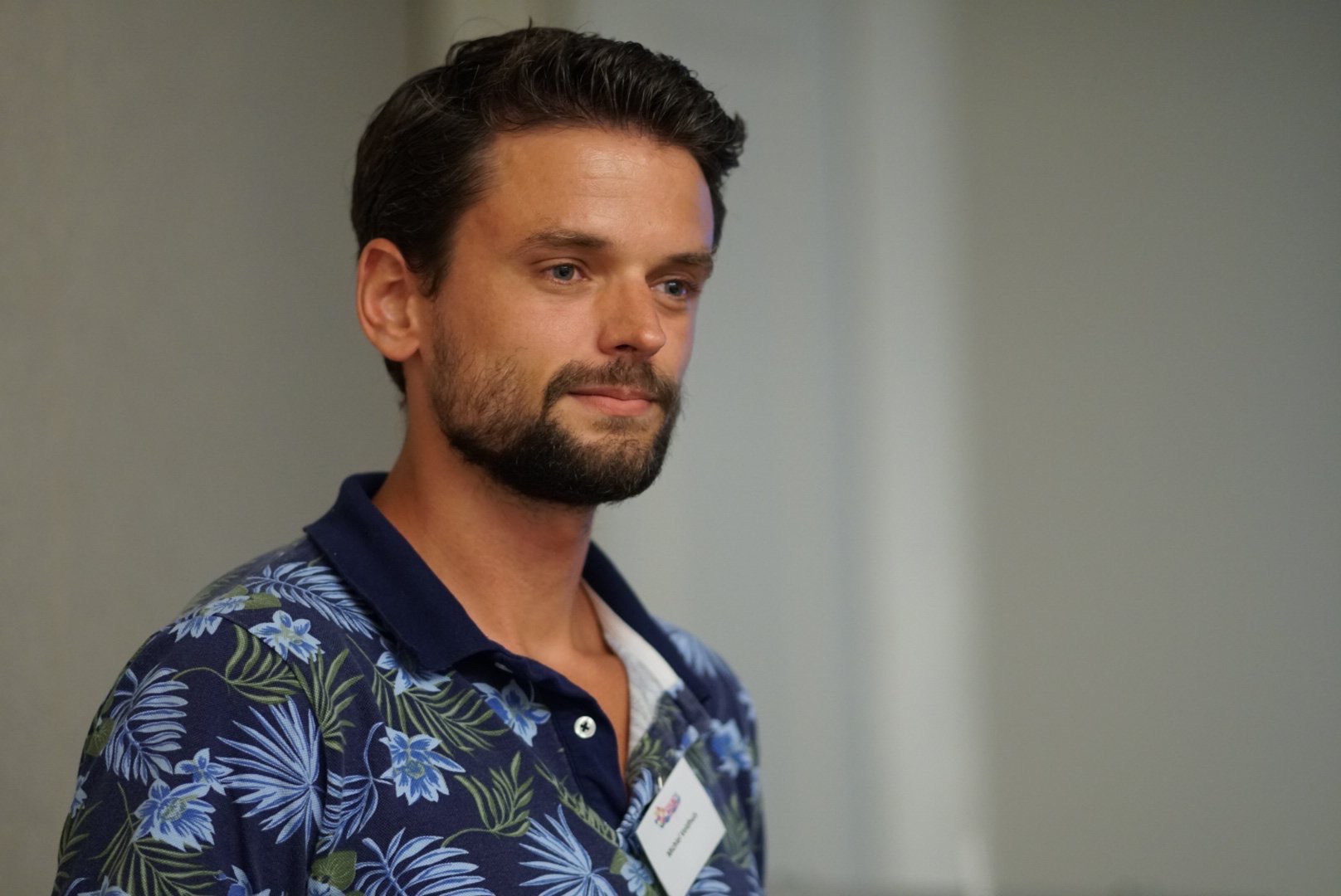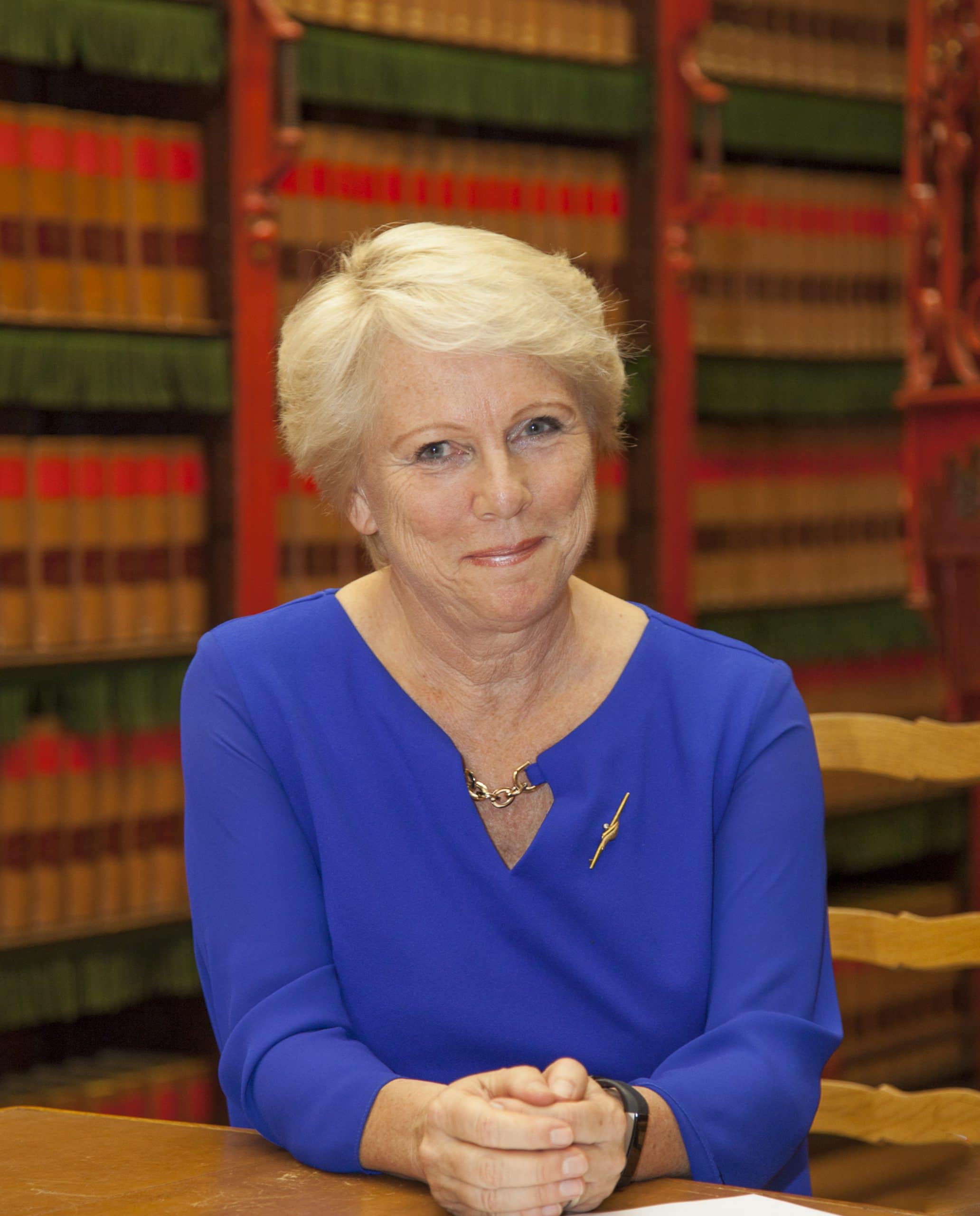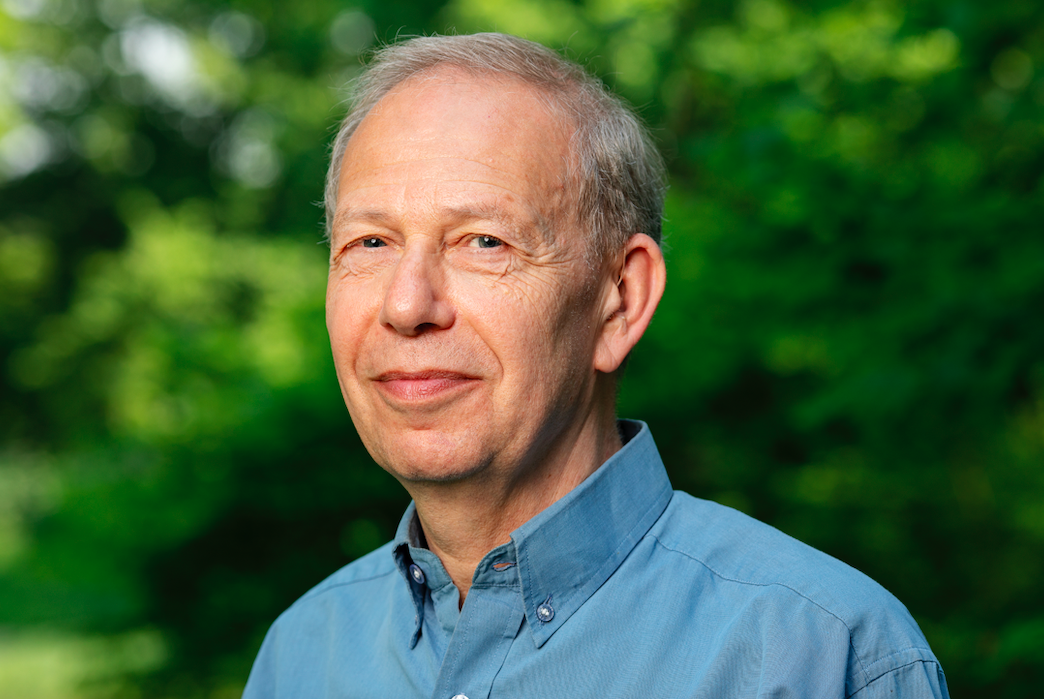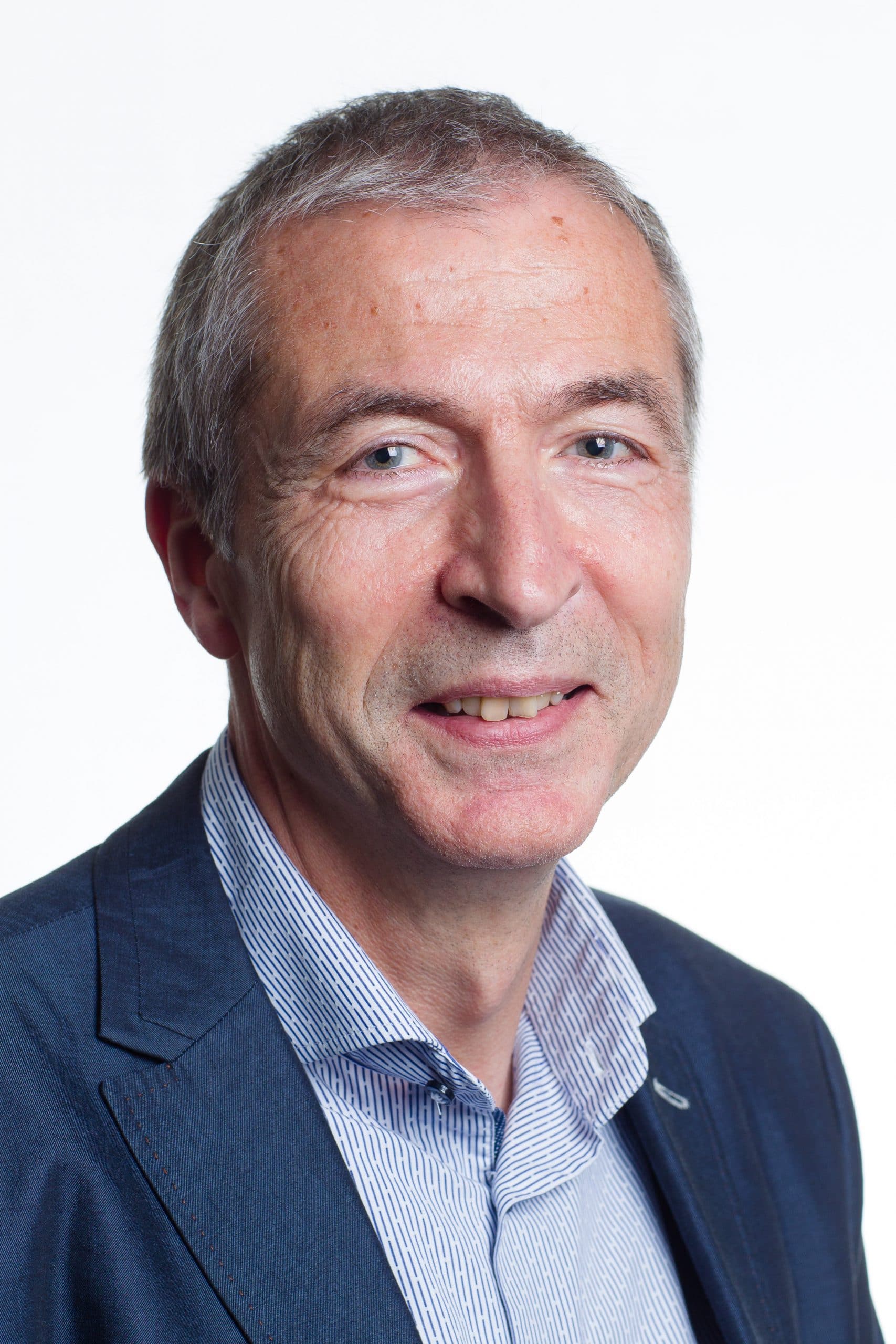Holland’s network of thought-leaders play a vital role in helping attract international association events and enhancing the country’s reputation as a knowledge hub. They provide an essential link between not-for-profit organisations and convention bureaus or destination marketing organisations. Their areas of expertise may be widely different – from science to healthcare and education – but they all have a common goal: to share and exchange knowledge for the greater good. Boardroom Magazine meets four influential figures instrumental in winning bids for their cities.
Research in Mathematics Education
The Netherlands is a hotspot for education and pedagogy, with Utrecht boasting expertise in the field of mathematics. Utrecht University’s Freudenthal Group – named after the Jewish-German-born Dutch mathematician Hans Freudenthal – carries out research into the didactics of mathematics in early childhood education, primary education, special education, and vocational education.
One of its leading researchers Michiel Veldhuis, is also a member of the European Society for Research in Mathematics Education (ERME). He and his colleague, professor Marja van den Heuvel-Panhuizen, saw the potential in bringing the association’s eleventh annual congress to Utrecht earlier this year. “The Netherlands, especially Utrecht University, has a long-standing experience in researching and designing mathematics education for which Freudenthal and his collaborators laid the foundation about half a century ago. Since then it has further developed as a strong research community with theoretically and practically relevant output,” he says.

Confident Utrecht would provide a “fruitful academic environment for sharing knowledge” Van den Heuvel-Panhuizen and Veldhuis worked alongside the Utrecht Convention Bureau and professional conference organiser Congress by Design to prepare a bid. “After ten successful editions in other European countries, we hoped to be able to organise this prestigious meeting for the first time in this beautiful city in the heart of the Netherlands,” explains Veldhuis, who has a PhD in mathematics education.
Having successfully won the bid, they collaborated on setting a budget and sourcing venues for the conference sessions and gala dinner. The historic Dom Square was chosen as the focal point for the event, which took place from 6-10 February, welcoming 1,000 delegates. Plenary sessions were held in the Dom Church (St. Martin’s Cathedral), one of the oldest buildings in Utrecht, while parallel sessions for 34 thematic working groups were hosted in historical buildings surrounding Dom Square, all within 10 minutes’ walking distance.
A winning combination of location, setting and expertise is what won Utrecht the bid says Veldhuis: “One distinguishing factor for the European Society for Research in Mathematics Education choosing Utrecht was its central local in Europe. The city of Utrecht combines the tradition of the old historic buildings and canals and the new world architecture and infrastructure. Finally, a very important factor for choosing Utrecht is the high reputation of Utrecht University.”
Tuberculosis Foundation
Kitty Van Weezenbeek has a career in tuberculosis (TB) related organisations stretching back over 37 years. She started her career as a provincial TB officer in the Netherlands, moving on to hold leading positions at the World Health Organization (WHO) headquarters in Geneva, and the WHO Western Pacific regional office.
As executive director of KNCV Tuberculosis Foundation (KNVC) – the world’s leading TB expert organisation – she was responsible for attracting the 49th Union World Conference on Lung Health to The Hague at the end of 2018. “Since KNCV’s headquarters are in The Hague and our organisation celebrated its 115 years anniversary in 2018, we decided to bid for the conference,”she explains.

KNCV had already established itself as a trusted partner of the event, having acted as a local host to the conference in 1932 and 1967, in Amsterdam. Van Weezenbeek was certain her foundation would make an excellent local host, prompting her to put in a bid with support from The Hague Convention Bureau. The conference’s organising team agreed and so the work to facilitate the network, introduce potential speakers and sponsors and identify suitable venues began.
“We worked together with the venues, the local authorities, including protocol departments for the presence of the Crown Princess of Japan, HIH Princess Kiko of Akishino, and Princess Margriet of the Netherlands, private sector partners, the Japanese Embassy, the Ministry of Foreign Affairs and the Ministry of Health,” reveals Van Weezenbeek.
The four-day event from 24-27 October attracted clinicians and public health workers, policymakers, researchers and advocates working to end the suffering caused by lung disease from 125 countries across the world – each presenting their own research findings. It specifically helped to generate more attention around TB in the Netherlands, which was amplified by some groundbreaking results in the field of childhood TB delivered by KNCV.
Van Weezenbeek says The Hague offered a unique and easily accessible setting for the conference: “The many direct flights to Schiphol [Airport] and the easy accessibility of The Hague to and from this airport was an important strength. The Hague is a relatively small city with excellent public transport, cosy restaurants and the seaside nearby.”
International AIDS Society
Physician-scientist Peter Reiss partnered with the International AIDS Society (IAS) to host the 22nd International Aids Conference (AIDS 2018) in Amsterdam from 23-27 July last year. A professor of medicine at the Amsterdam University Medical Center (UMC) and a former governing board member of IAS, Reiss has been working as a HIV researcher since the early 80s and is an advocate for HIV and AIDS education, prevention and treatment.
As co-chair of the conference, he brought together key stakeholders from Amsterdam and the Netherlands to secure their support in raising as much awareness of the event as possible. “We needed to do this jointly, so we got a group of representatives together including key NGO’s, ministries and affected patient communities together,” he explains. “Because we are a relatively small city and country the lines between people are short, and you can make a lot happen by getting the key people round a table.”

Against the background of AIDS 2018 the Dutch government committed to setting aside a rather large €10m fund for HIV prevention and making antiviral drugs more accessible for vulnerable groups particularly in regions where the disease is continuing to spread such as Eastern Europe, Central Asia, the Middle East and West and North Africa.
Reiss knew getting the local communities and other stakeholders involved in the build-up to the conference would play a major part in raising its profile. Two and a half years prior to the event he helped set up a planning group formed of various sub-committees responsible for overseeing a plethora of complementary events, alongside those directly organised by AIDS 2018. “We kept an inventory of ideas and logged what people were working on so we could bring that information together and communicate it centrally so our delegates knew what was going on. It was also a great way to prepare the country for what was going to happen,”he explains.
Reflecting on the conference, Reiss says it was this collaborative approach that made it such a success: “I’d like to see the same model we used for AIDS 2018 applied to events for other life-threatening conditions, like diabetes for instance. But to make it work all parties, including the local community, need to get behind it.”
Patient-centered care
Professor Jan Hazelzet is the clinical lead of the Value Based Health Care (VBHC) programme – a healthcare model focused on patient-centered care – at Erasmus University Medical Center (Erasmus MC) in Rotterdam. “The topic of VBHC is becoming more and more popular and important from clinical, economical, and policy perspective,” he explains. “My research is focused on the added value of our care to patients and exploring what are the outcomes that really matter to patients in relation to the costs and energy needed to achieve this.”
Hazelzet is also one of Rotterdam’s official knowledge ambassadors, having previously helped to bring association events for the city. This network of ambassadors helps to promote Rotterdam as an attractive congress destination and was established by the Rotterdam Partners Convention Bureau. It encompasses 87 academics, researchers and other experts connected to the Rotterdam region.

It was through his research into the VBHC sector that Hazelzet was able to persuade the International Consortium for Health Outcomes Measurement (ICHOM) to host its 2019 conference in the city from 2-3 May this year, bringing 1,250 delegates. “ICHOM is heavily involved in VBHC – it’s their reason for existence. Erasmus MC was their first strategic partner. Since the Netherlands are front runners in this field, it made sense to try host the ICHOM congress in the Netherlands, and in Rotterdam in particular,” he says.
With support from the Erasmus Congress Organization Center and
– the city’s convention bureau – Hazelzet secured the event without having to enter into a formal bid process. He and Rotterdam Partners then worked together to book the conference venue, source speakers and provide accommodation. “Everybody is still talking about the Rotterdam ICHOM conference and the far majority of the 1,250 participants were very happy and enthusiastic about the congress facilities,” says Hazelzet.
He is full of praise for his city as a host for association events: “We have excellent congress facilities and hotels centrally located, no-nonsense mentality, efficiency, a modern image and architecture, moderate prices, excellent international access and of course Rotterdam Partners with their pleasant efficacy.”
Contact ebakermans@holland.com/ www.holland.com/global/meetings – This piece was written by Boardroom editor Chantelle Dietz. The right to use, part or all of it in subsequent works has to be granted by the Publisher.
